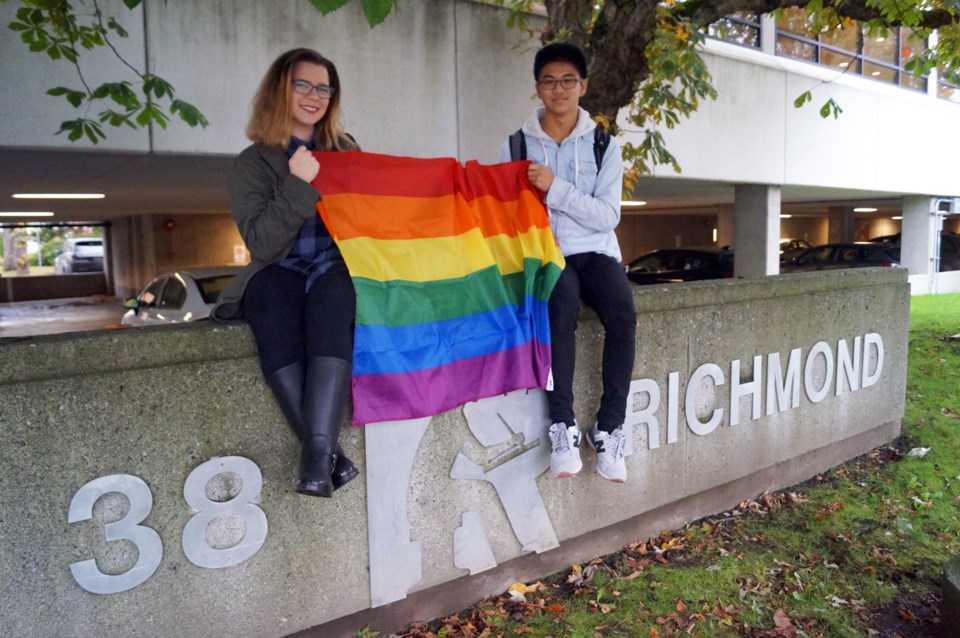The Richmond School District will begin drafting a special policy to increase understanding of sexual orientation and gender identity in schools.
Despite some opposition, Sandra Nixon — the only elected trustee to have advocated for such a policy prior to the 2014 election — says she’s “excited” to start working on it.
“I believe this policy will create a shift in culture in our schools,” said the independent trustee.
“We have heard from our students that identified in the gender minority that the reality is they don’t have access to a safe and affirming place in their school,” added Nixon.
Richmond presently falls into a small minority of districts in B.C. that does not have such a policy. In the Lower Mainland it is only joined by Abbotsford.
But at Monday’s Board of Education meeting, that changed when trustees voted 5-2 to re-work the policy books.
While the district is simultaneously updating its code of conduct to include gender identity, as mandated by the Ministry of Education, this additional policy will aim at disseminating knowledge about the special circumstances and discrimination that affect this portion of the population.
Trustee Jonathan Ho, of the Richmond Community Coalition, and Alice S. Wong, of Renew Richmond, voted against forming such a policy.
Five trustees followed the recommendation of Superintendent Sherry Elwood, who told them that academic research supports policies that provide all students and staff with resources to gain a deeper understanding of gender diversity issues. This will, in turn, reduce the amount of discrimination and isolation that affects students with minority sexual orientations and gender identities (SOGI).
Such research shows that these minority students are more prone to depression and suicidal thoughts than their peers. A report out of University of B.C. this week indicates such students are less likely to engage in sports and extracurricular activities.
Nixon said she hopes to form a working group with administrators, students, teachers, district staff and parents to form a policy quickly, without “more undue delays.”
But not everyone agrees the district should have such a policy.
Trustees were tabled with a petition of 6,000 signatures last November by a group called Parents Care Group.
Board chair Debbie Tablotney said the petition “wasn’t totally representative” of Richmond, as it had signatures from the United States and Hong Kong.
“A lot of it was collected on WeChat,” a Chinese social media forum, said Tablotney.
The petition stated that an all-inclusive code of conduct was sufficient and that extra attention to SOGI minority students was discriminatory against other minorities, or targets of bullying.
“I have to respectfully say that history shows when a group is faced with systemic marginalization and have not had a level playing field, sometimes special policies are needed to shift awareness,” said Nixon.
Both Ho and Wong told the News that they wanted more parent feedback, considering the amount of opposition they heard in the days leading up to Monday’s meeting, which saw some opposing parents speak against the policy, including one animated parent who heckled the board, according to teacher Lisa Descary.
Wong said she thought parents were not consulted since the board unanimously directed staff to investigate the development of a separate SOGI policy on Nov. 7.
Ho said some parents oppose the policy outright. He said he wanted to postpone a vote on creating the policy until more feedback was received.
Tablotney, speaking on her behalf, said the policy was long overdue.
“My hope is that this will move us from tolerance and acceptance to understanding and embracing,” she said.
“Tolerating is not understanding.”



